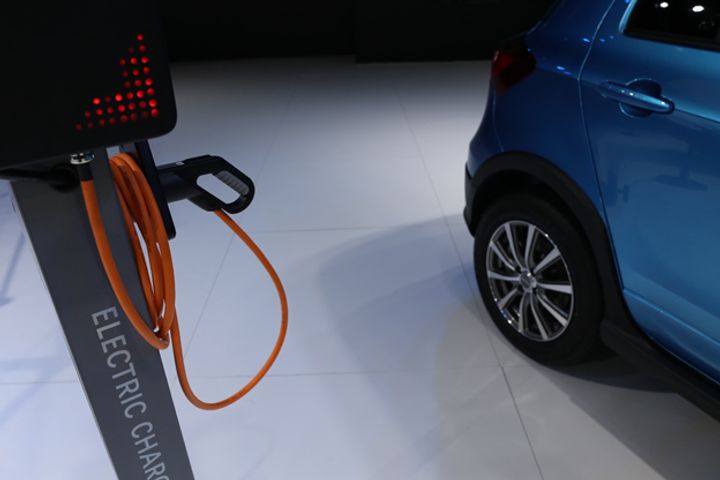 Profits in China's NEV Sector Slump as Government Lowers Subsidies
Profits in China's NEV Sector Slump as Government Lowers Subsidies(Yicai Global) Sept. 28 -- China's government and companies are in agreement that traditionally fueled cars should be replaced with new-energy vehicles, but the industry is still in a fledgling state and needs subsidies to develop, according to insiders.
This is the case even at the company's larger NEV makers, such as BYD Co. [SHE:002594], a Shenzhen-based manufacturer that has been the world's best-selling new-energy vehicle brand for two years.
Developing a new model costs about CNY1 billion (USD150 million), one insider told Yicai Global. Some plug-in hybrids produced by Chinese-foreign joint ventures are being sold at a loss due to high development costs and limited sales.
Home-grown brands are entitled to government subsidies and have outperformed their foreign counterparts. All of the 10 best-selling NEV brands in the country during the first half of this year were Chinese firms, with BYD claiming the top spot once again.
BYD, Chery Automobile Co. and Beijing Automotive Industry Holding Co.'s electric division, Beijing Electric Vehicle Co., have gained a certain level of brand awareness in the new-energy vehicle market and should be making money, industry expert Qiu Kaijun said in a recent interview with Yicai Global. That said, all of them are under mounting financial pressure because the government started to phase out subsidies last year.
This year, the government has slashed subsidies by 20 percent for new-energy passenger vehicles, 40 percent for buses and as much as 60 percent for pure-electric buses. Furthermore, subsidies which were previously paid up front are now only being granted to manufacturers after the end of this year.
The reduction has led to a slump in sales and net profits at NEV makers. For example, BYD saw a 23.8 percent dive in net profit attributable to shareholders of its listed arm in the first half of this year.
Central government subsidies have been cut to CNY24,000 (USD3,600) per sale while those from local authorities have been slashed to CNY12,000, a BYD source said. Many local governments have stopped subsidizing non-local brands, meaning BYD has had to pick up the slack with its own money.
Many NEV makers passed on the extra costs arising from the policy change to battery suppliers. However, BYD's traction batteries are internally sourced, so the costs have remained within the group.
The source refused to disclose details about changes in the price of BYD batteries and their proportion of total product costs over recent years.
Cell prices have fallen to about CNY1 (USD0.15) to CNY1.3 per watt-hour after a 20 to 30 percent slump in lithium battery prices this year to date, EV battery industry analyst Wu Hui told Yicai Global in a recent interview.
Shenzhen-based battery supplier OptimumNano Energy Co. introduced collaborative technology development initiatives and upgraded its operating model to lower costs during the subsidy phase out, said Wang Zhenyu, general manager at the firm.
It's hard to tell to what extent the cost of battery production needs to be reduced before NEVs can outstrip traditional vehicles in terms of market share, he added. Aside from technology, the market share of new-energy vehicles is determined by a wide variety of factors, such as lithium supply, charging facilities and charging safety.
NEVs will remain more expensive to product than fossil fuel vehicles for some time yet, Qiu said. They cannot completely replace traditional cars overnight. Production cost must be reduced through technological improvement and economies of scale, which could take a long time to achieve.